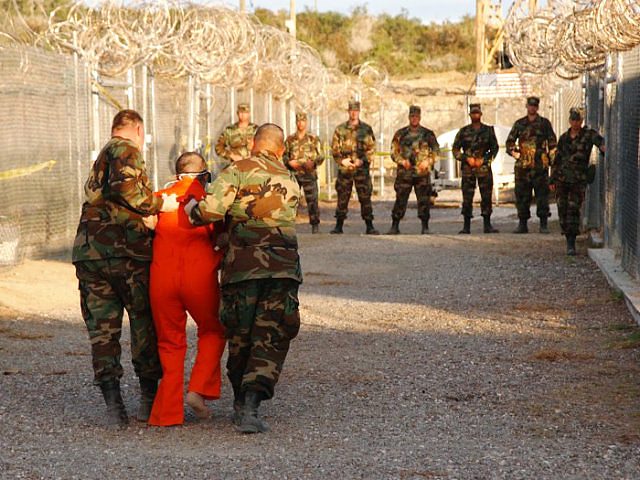
Image by Shane T. McCoy and is in the public domain.
Among the types of violence that Steven Pinker designates as “rare to non-existent in the west” is that chilling form of inhumanity, torture. Yet the western nation in which he lives and writes, the United States, seems up to its eyeballs in the perpetration of the dirty deeds.
Anyone remember what members of the U.S. military did in Abu Ghraib?
And how about Guantanamo Bay? Have you seen the Senate Committee Study of the Central Intelligence Agency’s Detention and Interrogation Program that chillingly confirmed horrendous acts of torture at Guantanamo and various “black sites”?
Torture, including prolonged solitary confinement, is also flourishing in penal institutions across the fifty states.
Immigrant children are physically and sexually abused while being held in detention until their fates can be resolved.
Both men’s and women’s prisons are hotbeds for rape and other forms of torture.
Sexual abuse is on the rise in juvenile correctional facilities; according to one report, the majority of the abusers are women.
And who will deny that police torture people in the streets, in paddy wagons, and in their stations?
According to Pinker, “The 18th century saw the widespread abolition of judicial torture, including the famous prohibition of “cruel and unusual punishment” in the eighth amendment of the U.S. Constitution (emphasis added).” He praises our enlightened society for recognizing that torture is wrong. But really, should we smugly pat ourselves on our backs if today’s judicial system no longer makes explicit recommendations of torture as a punishment for people they decide are guilty of something (e.g., being the “wrong” color), when its decisions often spawn it?
Pinker’s reassurances do not leave me hopeful for the imminent demise of torture in our institutions. The genuine optimists, like Nancy Arvold, Maria Rotella, Stephen Soldz, Prison Hunger Strike Solidarity, and Psychologists for Social Responsibility, work tirelessly to end torture, but resistance to reforms persist.
Underplaying the problem as Pinker does seems itself to be cruel but not unusual, although we should celebrate the genuine good news when it comes.
Kathie Malley-Morrison, Professor of Psychology



